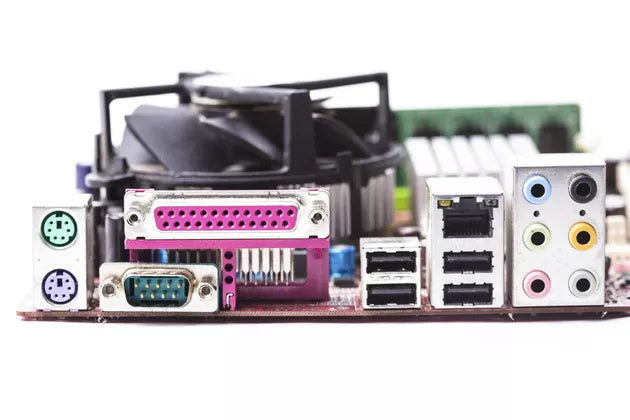When choosing a keyboard, the connection type is an important factor to consider. Different connection types have their own advantages and disadvantages in terms of stability, portability, and compatibility. This article will provide a detailed comparison of USB wired keyboards, PS/2 wired keyboards, Bluetooth keyboards, RF wireless keyboards, Lightning keyboards, and USB Type-C keyboards to help you choose the best one for your needs.
Advantages and Disadvantages of USB Wired Keyboards
Advantages:
- Stable connection with no latency
- Widely compatible with modern devices
Disadvantages:
- Limited mobility
- Cables can clutter the desk
Typical Use Cases:
- General desktop use
- Gaming
Advantages and Disadvantages of PS/2 Wired Keyboards
Advantages:
- Stable connection with no latency
- Can be used for BIOS setup
Disadvantages:
- Requires older interface
- Limited mobility, cable clutter
Typical Use Cases:
- Older desktop computers
- BIOS setup
Advantages and Disadvantages of Bluetooth Keyboards
Advantages:
- Wireless freedom
- Compatible with multiple devices
- Long connection range
Disadvantages:
- Potential latency issues
- Battery life concerns
Typical Use Cases:
- Mobile devices
- Laptops
- Tablets
Advantages and Disadvantages of RF Wireless Keyboards
Advantages:
- Wireless freedom
- Low latency
- Long battery life
Disadvantages:
- Requires a USB receiver
- Potential for interference
- Battery life concerns
Typical Use Cases:
- General desktop use
- Laptops
Advantages and Disadvantages of Lightning Keyboards
Advantages:
- Fully compatible with Apple devices
- Fast data transfer
Disadvantages:
- Limited to Apple devices
- Expensive
Typical Use Cases:
- Apple devices such as iPads and iPhones
Advantages and Disadvantages of USB Type-C Keyboards
Advantages:
- Fast data transfer
- Reversible connector
- Widely compatible with modern devices
Disadvantages:
- Limited compatibility with older devices
Typical Use Cases:
- Modern laptops and desktops
- Mobile devices
Comparison of Keyboard Connection Types (Table)
| Connection Type | Advantages | Disadvantages | Typical Use Cases |
|---|---|---|---|
| USB Wired | Stable connection, no latency, widely compatible | Limited mobility, cable clutter | General desktop use, gaming |
| PS/2 Wired | Stable connection, no latency, can be used for BIOS setup | Requires older interface, limited mobility, cable clutter | Older desktop computers, BIOS setup |
| Bluetooth | Wireless freedom, compatible with multiple devices, long connection range | Potential latency issues, battery life concerns | Mobile devices, laptops, tablets |
| RF Wireless | Wireless freedom, low latency, long battery life | Requires USB receiver, potential for interference, battery life concerns | General desktop use, laptops |
| Lightning | Fully compatible with Apple devices, fast data transfer | Limited to Apple devices, expensive | Apple devices such as iPads and iPhones |
| USB Type-C | Fast data transfer, reversible connector, widely compatible with modern devices | Limited compatibility with older devices | Modern laptops and desktops, mobile devices |
Different keyboard connection types have their own advantages and disadvantages. Choosing the right keyboard connection type depends on your specific needs and device compatibility. Whether you prioritize the stability of wired connections or the portability of wireless connections, each type has its ideal use cases.
Keywords
- Keyboard connection types
- USB wired keyboard
- PS/2 wired keyboard
- Bluetooth keyboard
- RF wireless keyboard
- Lightning keyboard
- USB Type-C keyboard
- Keyboard advantages and disadvantages
- Keyboard comparison
- Wired vs wireless keyboards
- Keyboard connection stability
- Keyboard latency
- Keyboard battery life
- Gaming keyboard
- Laptop keyboard
- Desktop keyboard
- Mobile device keyboard








Leave a comment
This site is protected by hCaptcha and the hCaptcha Privacy Policy and Terms of Service apply.